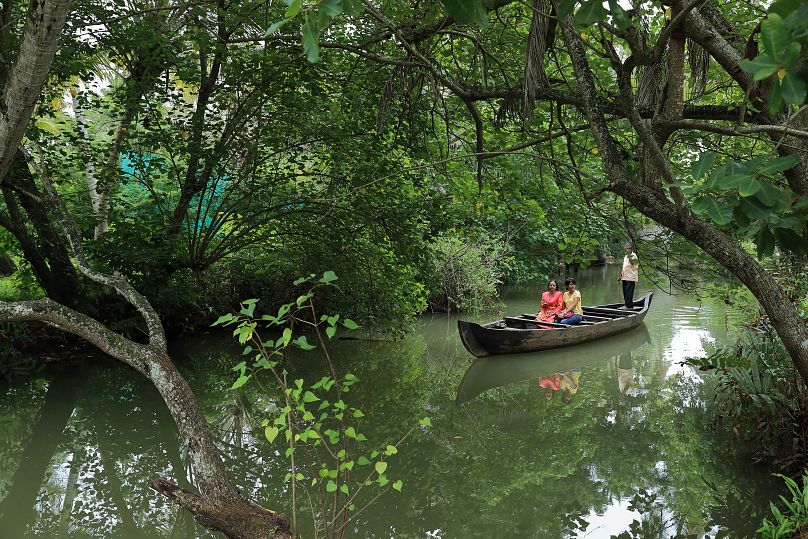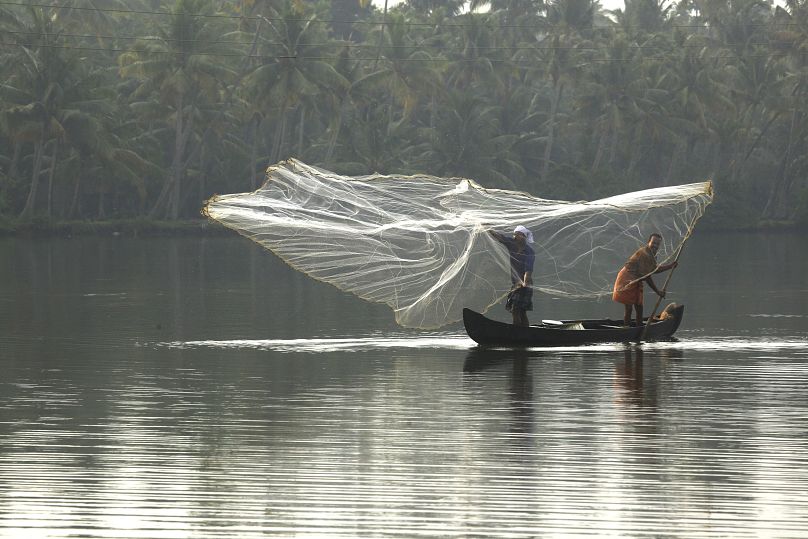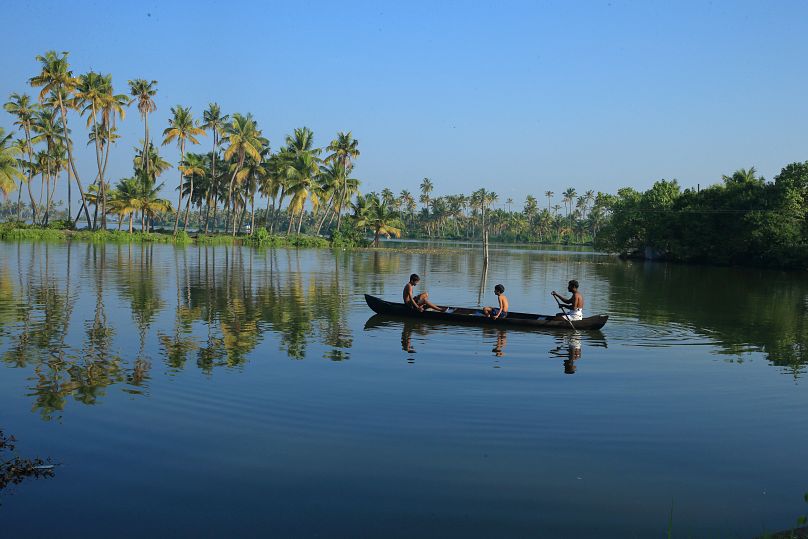Imagine this: the boatman skillfully navigates the canoe as it glides down the river. Crystals of water dance in the air with each tug on the oars. Occasionally, a light spray hits your face – invigorating and refreshing. Palm trees line the banks on either side, peeping through the early morning mist.
Metres away from the boat, a cormorant darts into the water. Several minutes later, it gracefully resurfaces, a mullet fluttering between its hook-tipped beak.
In a place known as God's Own Country, the pristine backwaters are forgotten by time. Kerala is worlds apart from the frenetic pace of life in the rest of the country. And no visit here is complete without experiencing the Great Backwaters.
Sometimes compared to the American bayous, the backwaters are a 900-km-long labyrinthine system of rivers, canals, and lakes dotted by numerous large and tiny islands. They were formed by the action of waves and coastal currents at the mouth of the 44 rivers that tumble into the Arabian Sea from the western ghats. Here you experience a unique ecosystem of flora, fauna and human co-habitation. A symbiotic dance going back thousands of years.
Each of the 34 lakes in these backwaters is a hot spot for naturalists, ornithologists and amateur bird lovers. Crabs, frogs and mudskippers, water birds such as terns, kingfishers, darters and cormorants, and animals like otters and turtles are found in abundance.
The mangroves that border the eastern banks of the Vembanad Lake, the largest lake in southern India, are home to various endemic and exotic species of birds. The eight-armed Ashtamudi Lake is the second longest lake in Kerala and shelters several endangered marine species. The best time to experience avian and aquatic life here is between November and February.
While you will be enthralled by Kerala's natural beauty, you will be bewitched by the state's cultural heritage. Experience the all night ancient dance rituals like Theyam and Kathakali. Visit some of the ancient churches, temples and mosques close to the riverbanks, in the midsts of coconut groves and rice fields.
The riverbanks are dotted with floating markets. Here, vendors of traditional earthen pots and coir ropes jostle for space alongside paddy cultivators and spice traders as they have done for centuries.
These waterways have formed an essential part of social interactions in Kerala. Here the skiff is the preferred mode of transport for both people and goods, and children learn to swim before they learn to read.
This region is also home to some of the finest boat builders in the world. The practice has not changed much for centuries, and artisans still craft boats without a single nail.
If it's the excitement you crave, join the snake boat races, a tradition in Kerala for centuries. Snake boats are over a hundred feet long, with the rear end towering over 20 feet above the water, resembling a cobra with its hood raised. The Vallam Kali or boat races used to be how kings settled disputes. These boat races are held annually from July to November across the backwaters. With 90 to 110 rowers, the snake boat races are the largest team sport in the world. The biggest of these is held on the second Saturday in August in the Punnamada Lake near Alappuzha.
Any trip to Kerala is not complete without a rejuvenating Ayurvedic massage. This treatment is over 5000 years old and continues in modern Kerala. You will find spas and retreat centres by the backwaters where your stress and worries will dissipate like the early morning mist on the river, under the able hands of a certified practitioner.
Choose to spend your holiday floating on a houseboat. These offer a luxurious way to experience life in perfect harmony with nature. Or select one of many homestays and eco-resorts that dot the length of Kerala's backwaters. Better yet, try a combination of both! Either way, try out the authentic Kerala cuisine. The traditional Kerala breakfast is considered one of the best meals India has to offer.
A trip to the Great Backwaters of Kerala is a trip back in time – a slice of nature that's not changed much in centuries. And thanks to Kerala's commitment to Responsible Tourism with sustainable practices, these ecosystems continue to thrive while also enabling tourists to encounter nature at its best.
Kerala's backwaters beckon you to an experience that will last a lifetime.
By Gasper DSouza




